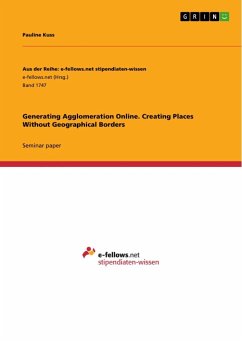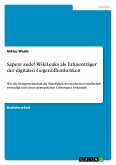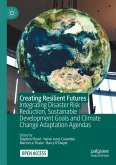Seminar paper from the year 2015 in the subject Sociology - Culture, Technology, Nations, grade: 1,0, National University of Singapore, language: English, abstract: This paper argues that the internet could support the creation of a "space-less place" where agglomeration effects can be re-created independent from geographic location. Addressing dominant doubts and critiques it proposes the framework of an online platform in which space-less agglomeration can occur and which thus, if correctly implemented and administered, holds great potential for innovative development in countries which find themselves unfortunately located outside the economic core region of today's world.From the perspective of geographic economics, location factors seem to be of major importance to explain existing (global) economical orderings which, when favorable, allow for agglomeration effects such as knowledge spillovers that are necessary for innovative processes. However, the worldwide spread of the internet and its implied potential to transmit information and communication to every connected corner of the planet might make information technology the "space-shrinking technology" which ultimately renders spatial differences between places unimportant. While scholars agree that the internet offers global access to information, a majority disbelieves in its potential to challenge geographical advantages and thus disrupt the world's economic ordering. Although internet communication allows for global connectivity it might fail to adequately provide the density, diversity, spontaneity and effective communication of tacit knowledge needed for innovative business practices.








